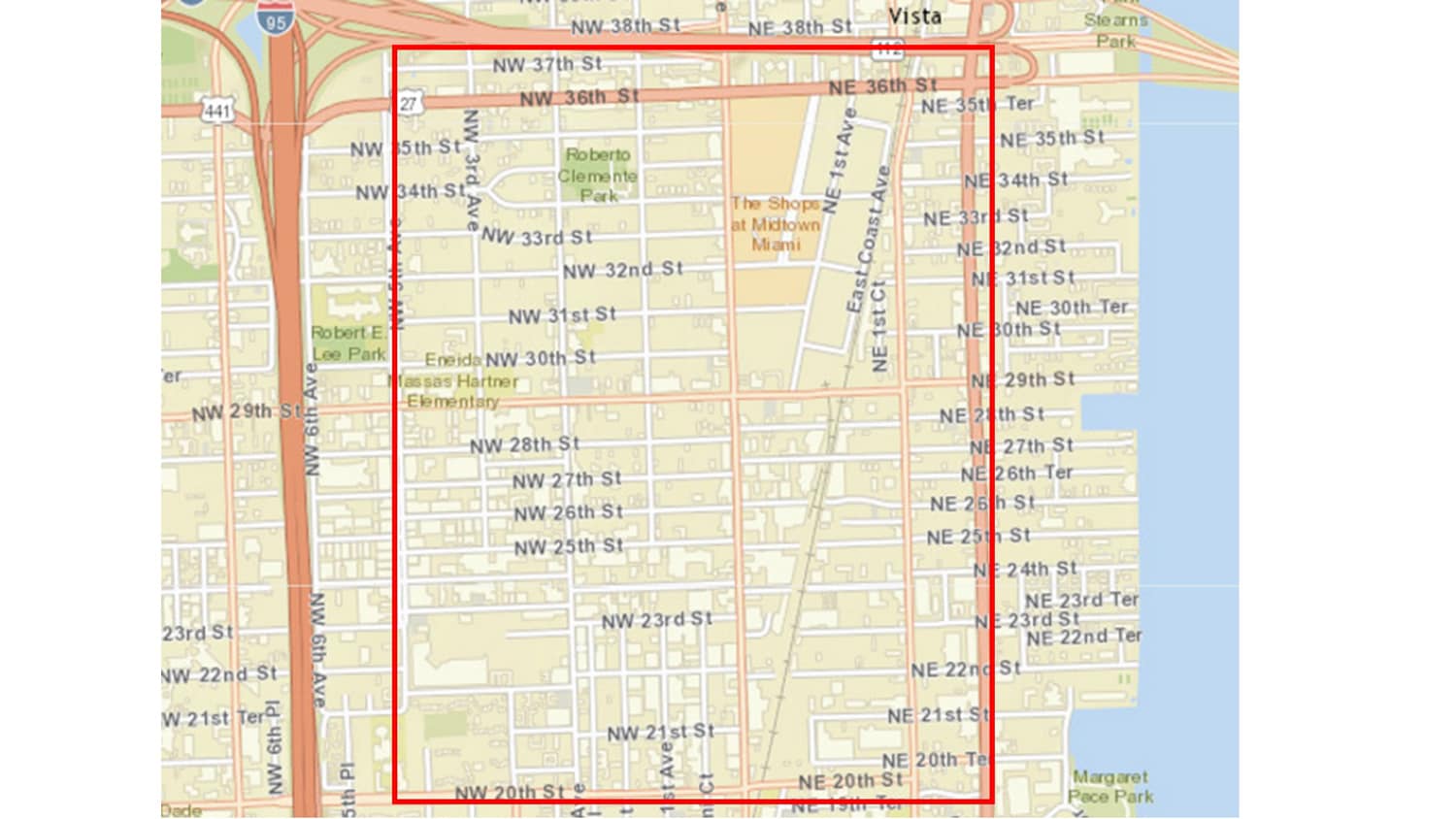| The Florida Department of Health has identified the area in the picture as the neighborhood of Miami where Zika is being spread by mosquitoes. This guidance is for people who live in or traveled to this area any time after June 15 (based on the earliest time symptoms can start and the maximum 2-week incubation period for Zika virus). |  |
Pregnant women and their partners
- Pregnant women should not travel to this area.
- Pregnant women and their partners living in or traveling to this area should follow steps to prevent mosquito bites.
- Women and men who live in or traveled to this area and who have a pregnant sex partner should use condoms or other barriers to prevent infection every time they have sex or not have sex during the pregnancy.
- All pregnant women in the United States should be assessed for possible Zika virus exposure during each prenatal care visit.
- Pregnant women who live in or frequently travel to this area should be tested in the first and second trimester of pregnancy.
- Pregnant women with possible Zika exposure and signs or symptoms of Zika should be tested for Zika.
- Pregnant women who traveled to or had unprotected sex with a partner that traveled to or lives in this area should talk to their healthcare provider and should be tested for Zika.
Couples thinking about getting pregnant
- Women with Zika should wait at least 8 weeks and men with Zika should wait at least 6 months after symptoms began to try to get pregnant.
- Women and men who live in or frequently travel to this area should talk to their healthcare provider.
- Women and men who traveled to this area should wait at least 8 weeks before trying to get pregnant.
Florida health officials can answer specific questions on their mosquito control program. Aerial treatment of areas with products that rapidly reduce both young and adult mosquitoes can help to limit the number of mosquitoes that carry the Zika virus. Repeated aerial applications of insecticide has reduced mosquito populations as a part of an integrated vector management program.
Further, CDC Emergency Response Teams (CERT) stand ready to deploy to locations within the United States that confirm local Zika transmission. CERTs are made up of highly trained public health experts who can augment state and local authorities’ efforts to identify cases, test specimens, roll out public information campaigns, and launch enhanced vector control strategies. Question concerning this matter may be sent to OFM-EmergencyMgt@state.gov
This is an evolving situation, to this day the cases in the Consular Jurisdiction are the following:
| STATE | TRAVEL-RELATED | LOCALLY-ACQUIRED | TOTAL |
| Florida | 452 | 30 | 482 |
| Alabama | 11 | 0 | 11 |
| Mississippi | 14 | 0 | 14 |
| Georgia | 46 | 0 | 46 |
| South Carolina | 31 | 0 | 31 |
| Puerto Rico | 30 | 6,475 | 6,505 |
| US Virgin Islands | 1 | 68 | 69 |
More information about the Zika virus: http://www.cdc.gov/zika/index.htmlFor the other states, there are not specific data related to the cases, but the presence of the Zika virus has been confirmed, therefore officials suggest to read the following instructions in this link http://www.cdc.gov/zika/prevention/index.html to avoid the infection.
About other diseases: http://www.cdc.gov/




